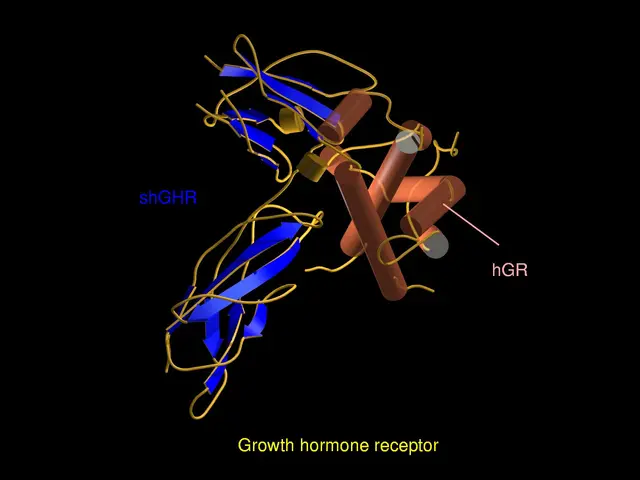Maintaining a Nutritious Diet in Cases of Metastatic Breast Cancer that is HER2-Negative
Living with HER2-negative metastatic breast cancer is a complex journey, requiring the management of appointments, treatment side effects, and overall mental well-being. Amidst this, the importance of following a healthy diet can often feel overwhelming. However, as healthcare professional Nickie Michaelis, RD, LD, suggests, making healthier food choices can offer significant benefits, including a stronger immune system and improved energy levels to navigate cancer treatments.
It's essential to understand that a healthy diet cannot cure HER2-negative metastatic breast cancer. Instead, it should complement the medical treatments recommended by your healthcare team, such as chemotherapy, immunotherapy, radiation, hormone therapy, and other measures.
The foundation of a healthy diet, regardless of cancer status, centers around reducing processed foods and increasing nutrient-dense foods. Key aspects to focus on are:
- Expanding the variety of fresh fruits and vegetables in your diet.
- Choosing whole-grain breads, crackers, and pasta over refined grains.
- Selecting lean proteins such as poultry, fish, tofu, lentils, and beans over red meats.
- Opting for unsaturated fats like olive oil, nuts, and seeds.
- Drinking water instead of sweetened beverages.
For those living with HER2-negative metastatic breast cancer, additional considerations may include:
Boosting Immune Function:
Certain cancer treatments may impact the immune system, leaving individuals more vulnerable to infectious diseases such as colds, coughs, and even COVID-19, RSV, and the flu. In addition to vaccinations, a nutrient-rich diet can strengthen the immune system further. Foods known for their immune-boosting properties include fatty fish, citrus fruits, garlic, ginger, turmeric, broccoli, bell peppers, spinach, yogurt, almonds, and sunflower seeds.
Preventing Foodborne Illness:
A weakened immune system may also increase susceptibility to foodborne illness, making it crucial to follow safe food handling practices. This includes avoiding undercooked meat, fish, and eggs; unpasteurized products like soft cheeses, raw milk products, and "natural" juices and ciders; and raw honey. Practicing good food safety measures, like washing hands frequently, refrigerating leftovers promptly, and cooking foods thoroughly, can help minimize the risk of food poisoning.
Managing Weight:
Maintaining a healthy weight can support overall body strength during cancer treatment. While some individuals may gain or lose weight during treatment, unhealthy weight changes can exacerbate symptoms and make it harder to manage cancer. Consulting a healthcare provider can provide guidance on achieving or maintaining a healthy weight through healthy eating habits and, if necessary, regular exercise.
In cases of unintentional weight loss or gain, tailored advice can help address the underlying causes and ensure suitable calorie and nutrient intake. For those seeking to lose weight, it's important to avoid crash diets and fad weight loss programs, as these may not be suitable for individuals with serious medical conditions like HER2-negative metastatic breast cancer. Instead, focus on small, sustainable changes to diet and lifestyle that promote overall health and well-being.
Consulting with a healthcare provider or a registered dietitian can help individuals with HER2-negative metastatic breast cancer develop personalized dietary strategies to manage weight, boost immune function, and improve quality of life during treatment.
- A healthy diet, while not curing HER2-negative metastatic breast cancer, can complement medical treatments and boost the immune system for increased energy during cancer treatment.
- The foundation of a healthy diet includes reducing processed foods and increasing nutrient-dense foods, such as fresh fruits, vegetables, whole grains, lean proteins, unsaturated fats, and water.
- For people with HER2-negative metastatic breast cancer, immune function can be further strengthened through foods like fatty fish, citrus fruits, garlic, ginger, turmeric, broccoli, bell peppers, spinach, yogurt, almonds, and sunflower seeds.
- To prevent foodborne illness, safe food handling practices such as washing hands frequently, refrigerating leftovers promptly, and cooking foods thoroughly are important, especially for individuals with weakened immune systems.
- Maintaining a healthy weight can support overall body strength during cancer treatment, and consulting a healthcare provider can help provide guidance on achieving or maintaining a healthy weight through a suitable calorie and nutrient intake.
- Individuals with HER2-negative metastatic breast cancer may find it beneficial to consult with a healthcare provider or a registered dietitian to develop personalized weight-management strategies, immune-boosting diets, and healthy eating habits to improve overall quality of life during treatment.







